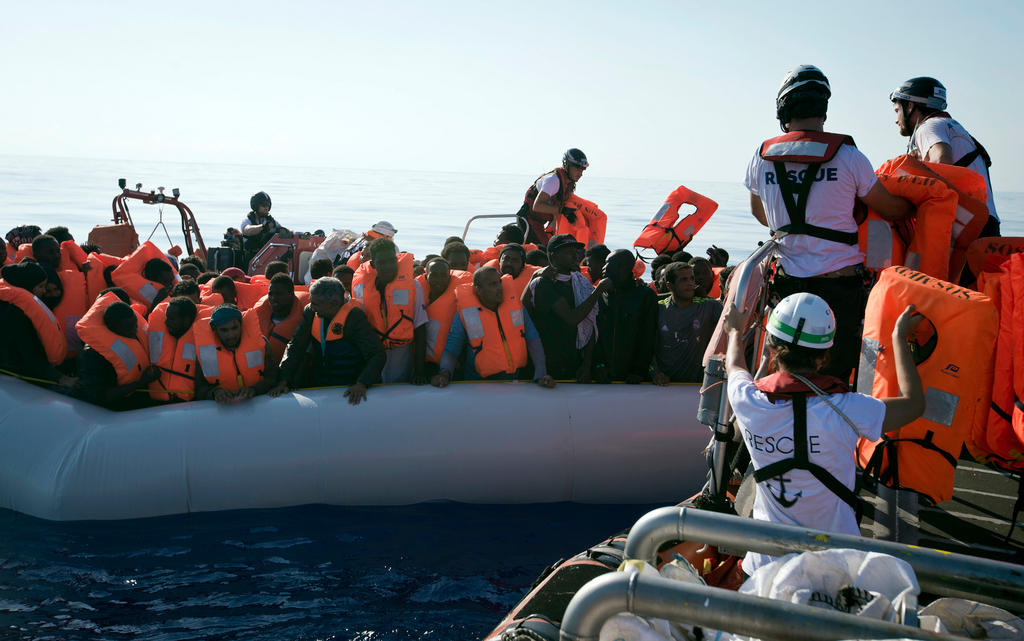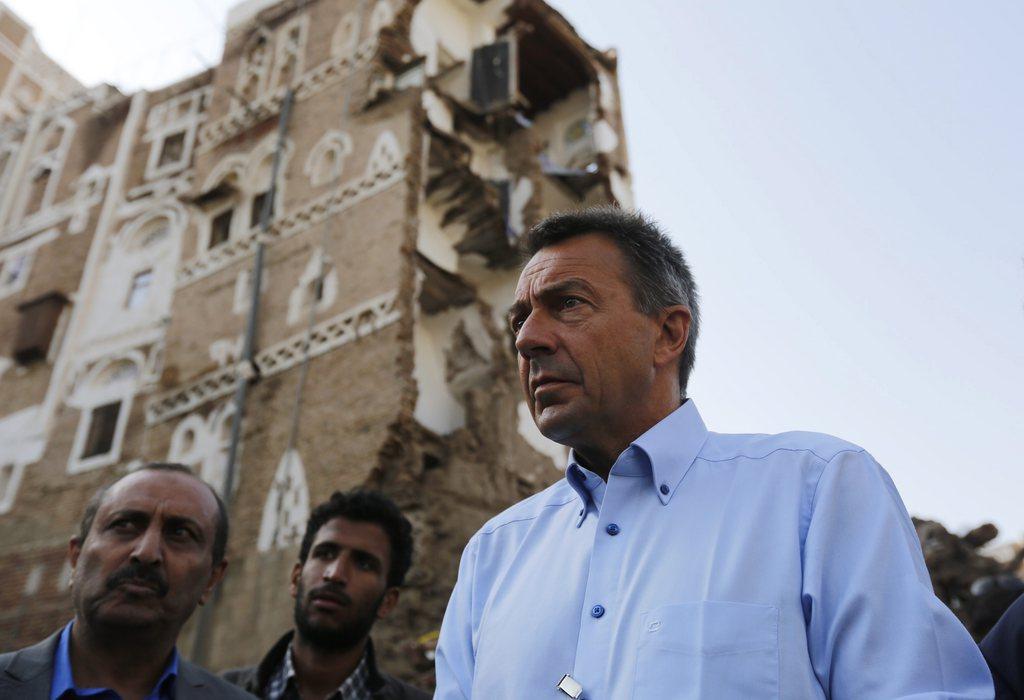
Swiss-led meeting calls for better protection of refugees

Representatives from 13 European and African states as well as the European Union and the United Nations have agreed in principle to improve the protection of migrants, notably the situation in Libyan detention centres. Swiss human rights organisations are unconvinced by the proposals.
The latest meeting of the multinational discussion forum, the Central Mediterranean Contact Group, was hosted by Switzerland in its capital, Bern.
In a declaration of intent, the group recommended to support local authorities and international organisations, including the International Committee of the Red Cross (ICRC), the UN High Commissioner for Refugees (UNHCR) and the International Organization for Migration (IOM) by giving them access to detention centres.
The measures also foresee a resettlement programme for about 50,000 vulnerable refugees and migrants in a third country and procedures for the voluntary return of migrants.
“No country, no institution can meet the challenges of migration on its own,” Swiss Justice Minister Simonetta Sommaruga told a news conference on Monday.
She stressed that cooperation must be strengthened to avoid writing a “dark chapter of European history”.
Optimism
No concrete steps were announced on Monday, but participants at the conference said they were optimistic that progress to alleviate the plight of refugees and migrants will be made in the months to come.
Filippo Grandi of the UNHCR and the European Commissioner for Migration, Dimitris Avramopoulos, said they had firm pledges from the Libyan authorities to implement the measures, but they cautioned that the situation in the North African country was not straightforward.
Mali’s Minister for African Integration, Abdramane Sylla, welcomed the joint efforts to stop the humanitarian tragedy. He added that illegal migration and human trafficking must be tackled but that in the long run European countries must offer more visas to allow for legal paths of migration.
IOM Director General William Lacy Swing, for his part, stressed that migration is not a new phenomenon and that dialogue on the issue is crucial and must continue.

More
ICRC hopes for consensus, resettlement deal at migration conference
The conference in Bern was the third of its kindExternal link and follows meetings in Italy and Tunisia earlier this year. They focused primarily on boosting the capabilities of the Libyan coastguard in the Mediterranean and improving controls in the south of the country.
The Contact Group agreed to meet again in Niger at a date still to be defined.
Criticism
In a bid to counter critics, Sommaruga said the group had no power to decide, but it was an important forum for discussing “difficult problems openly”.
However, the Swiss non-governmental group, Solidarité Sans Frontières, dismissed the conference as a talking shop.
“The meeting of the contact group has nothing to do with the much-vaunted humanitarian tradition of Switzerland,” said the group’s vice-president, Sophie Guignard.
On the sidelines of the conference, the group complained that European countries cooperate with regimes guilty of crimes against human rights.
“How can democratic Europe tolerate systematic human rights violations on its doorstep,” said Father Mussie Zerai, who has been involved in rescue efforts for refugees in the Mediterranean. He blamed governments for undermining solidarity and discrediting human rights groups.
Human rights groups say about 154,000 people have arrived in Europe this year and that up to 3,000 victims have died on their way.
The total number of arrivals has dropped by nearly a third compared with the previous year, according to the European Commission, notably through international efforts to fight human trafficking, addressing the roots of migration and “improvements of migration management”.

In compliance with the JTI standards
More: SWI swissinfo.ch certified by the Journalism Trust Initiative
































You can find an overview of ongoing debates with our journalists here . Please join us!
If you want to start a conversation about a topic raised in this article or want to report factual errors, email us at english@swissinfo.ch.